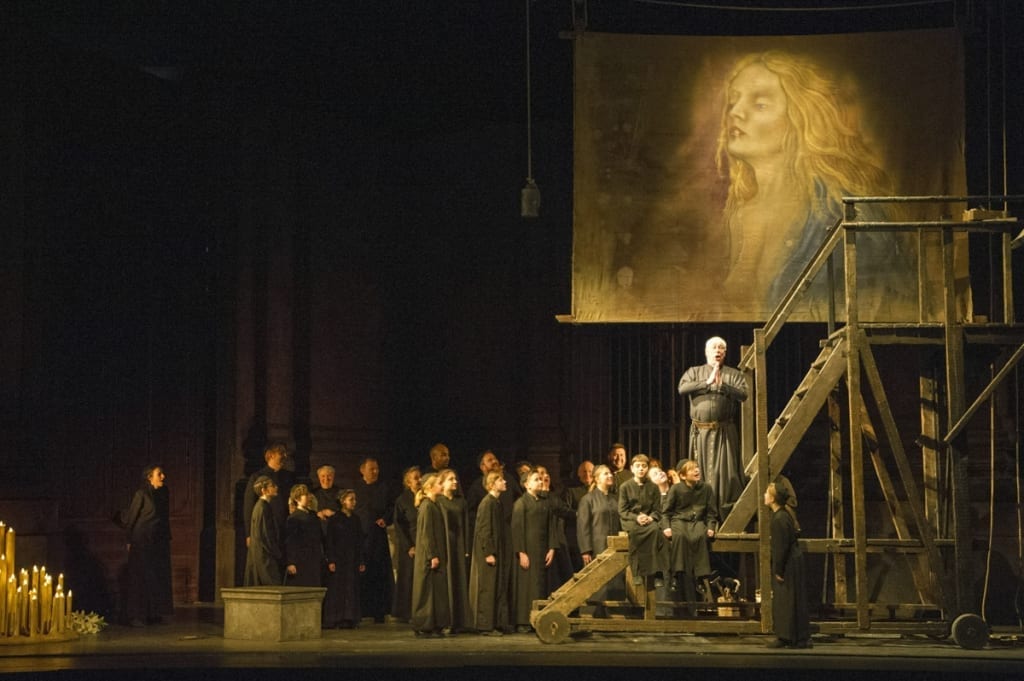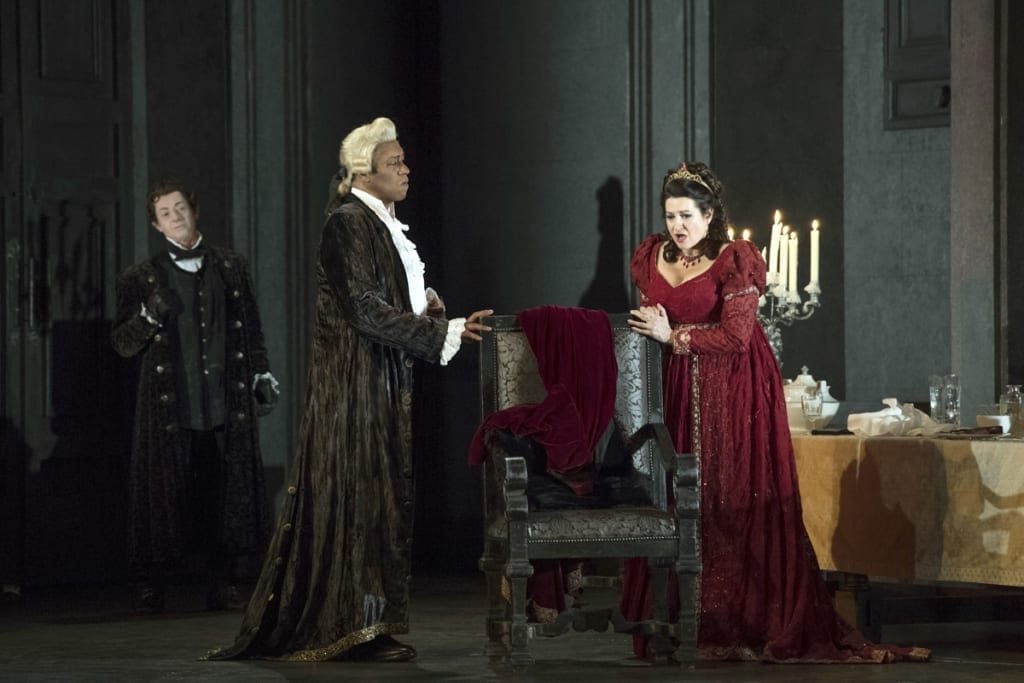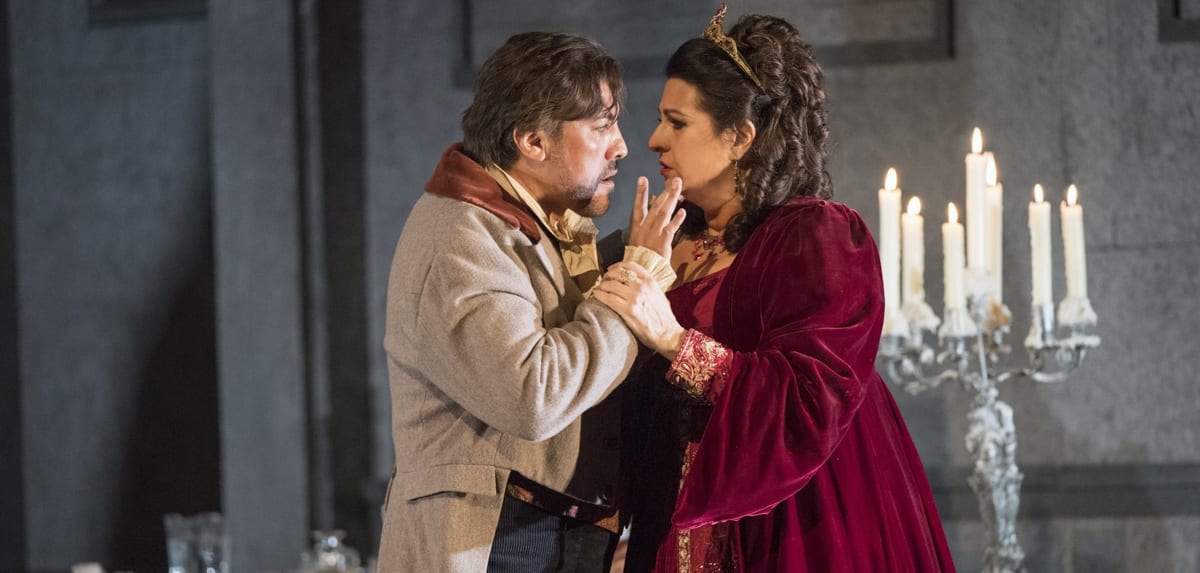Puccini’s masterpiece Tosca was first performed in Rome in 1900. It is a tale of sedition, torture, rape, and betrayal and it is easy to understand why American critic Joseph Kerman called it “a shabby little shocker”. But in 2018, even in this very traditional production by Welsh National Opera, the echoes of the ‘Me Too’ campaign can be heard at so many crucial moments in the opera. When Tosca stabs her tormentor to avert rape, I thought of the fate that mighty have befallen other more recent sexual predators.

The opera takes place in Rome when the ruling powers are threatened by the advance of Napoleon’s invading armies. Floria Tosca is a singer who loves Mario Cavaradossi, a painter. When Mario finds himself helping a republican prisoner who has escaped from the gaol run by police chief Baron Scarpia, Tosca is sucked into the clutches of the suave sadist who sees a way to have Mario executed and to force Tosca to submit to his lust. She thwarts him but, in the tragic final act, Scarpia’s treacherous plan leads to the deaths of both lovers.
This story would seem pretty tawdry if it wasn’t for the superb music that Puccini, at the height of his powers, lavished on the work. And with singers of the calibre of those on the Cardiff stage in this production – and with conductor Carlo Rizzi conjuring magical playing from the WNO orchestra – it can transcend the grubby storyline. When the splendid Clare Rutter sings Vissi D’Arte with searing pain and passion, the suffering of a woman tortured into submitting to a man she loathes to save a man she loves seems all too real. And as her nemesis, Mark S Doss plays Scarpia with that combination of elegance and brutality that turns the dinner scene into the powerful dramatic confrontation that the music demands. He commands the stage from his arrival in the church in the first scene to his final moments – when Tosca whispers “Before this man, everyone in Rome trembled” you can believe it was true.

Hector Sandoval did not quite hit the heights of Rutter and Doss but his muscular tenor rang out at the key moments and his heart-rending aria Lucevan le Stelle in the final scene as a beautiful red dawn breaks over the Castell St Angelo was wonderful. Other minor roles were well realised by the much loved veteran Donald Maxwell as the Sacristan. Daniel Grice as the escaping prisoner and Michael Clifton-Thompson as Scarpia’s cringing henchman, Spoletta.
This long running production, originally put together by Michael Blakemore and Ashley Martin-Davis, has lasted very well. Tosca is an opera that in my view can flourish equally well set in 1800 or 1944 and this version does not suffer for being rooted in Napoleonic Rome. And with the redoubtable Carlo Rizzi in total control of the pit and the stage this WNO revival offers an evening of real operatic pleasure.

